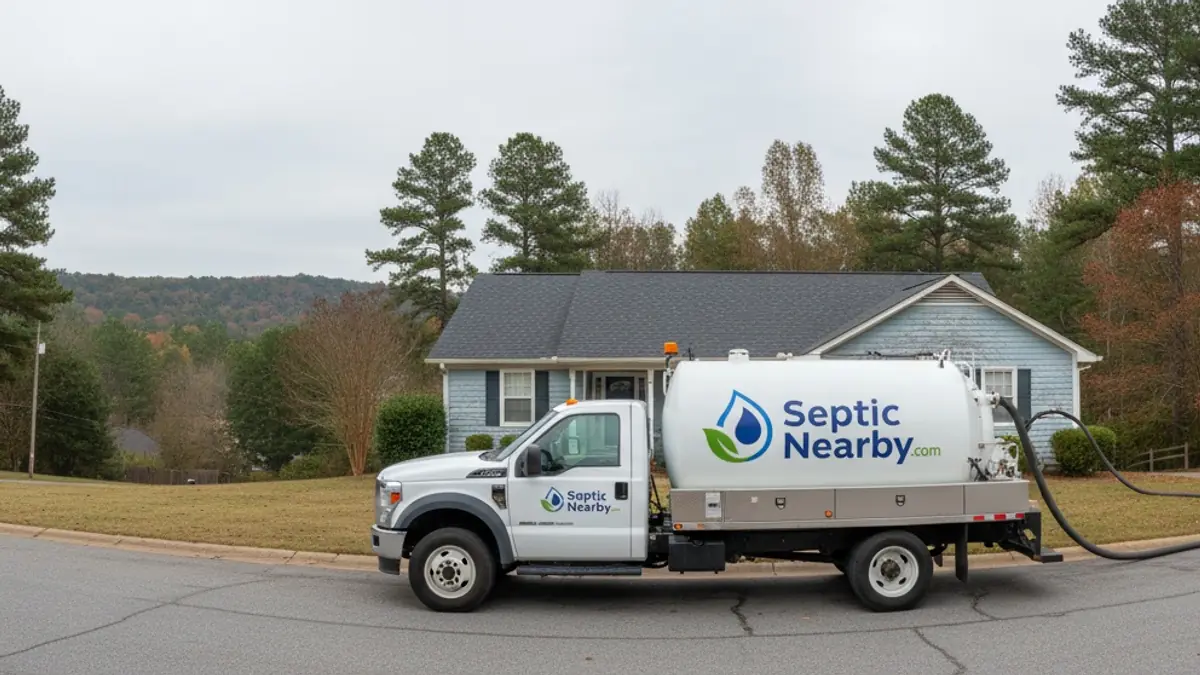Septic Pumping Services in Muscogee County, GA
 Photo Illustrative
Photo Illustrative+1-470-9-SEPTIC
Operators available 7 AM - 9 PM
Licensed & Insured • No Obligation • Emergency Service Available
Cities We Serve in Muscogee County
Local Septic System Factors in Muscogee County
Muscogee County On-Site Wastewater Management: A Public Works Perspective
In Muscogee County, our approach to wastewater management is a tale of two systems. Within the dense urban core of Columbus, municipal sewer infrastructure provides a centralized, effective service. However, as you move into the suburban and rural landscapes of Midland, Fortson, and Upatoi, the responsibility shifts. Here, thousands of properties rely on individual on-site sewage management systems—commonly known as septic systems. From a public works standpoint, these private systems constitute a significant, decentralized piece of our county's essential infrastructure. Their proper function is critical not just for individual homeowners, but for the protection of our shared groundwater, the health of the Chattahoochee River watershed, and the long-term viability of our communities.
Infrastructure Status and Environmental Realities
The performance of this decentralized infrastructure is directly tied to our local environment. Muscogee County sits at a geological crossroads, marked by a blend of Piedmont clay loam and the sandier soils of the Upper Coastal Plain. This variability presents unique challenges. The heavy, reddish clay common in many areas has a slow percolation rate, demanding larger, more carefully designed drain fields. Our humid subtropical climate, characterized by heavy spring and summer thunderstorms, can oversaturate these clay soils, leading to sluggish drainage and, in some cases, system backups. Conversely, areas with sandy loam may drain faster but require careful siting to prevent effluent from migrating too quickly toward the water table. The age of the housing stock in certain areas also means we are managing a legacy of older systems, some of which may not meet modern standards for our specific soil and climate conditions. Maintaining the operational integrity of this aging, private infrastructure is a core public health priority.
Service Delivery: A Partnership Model
While the county does not provide septic pumping or repair services, we are responsible for the regulatory framework that ensures public safety and environmental protection. The Muscogee Board of Health's Environmental Health division is the key agency in this service delivery model. They oversee the permitting process for all new installations and for significant repairs or modifications to existing systems. This oversight ensures that work is performed to code by qualified contractors, accounting for site-specific conditions like soil type, lot size, and proximity to wells or surface water. This public-private partnership is essential: homeowners are responsible for routine maintenance, certified contractors perform the work, and the county provides the regulatory backstop. Achieving a high service level across our communities depends on each partner fulfilling their role. A neglected system in one yard can have consequences for neighbors and the local environment.
Budget Management and Long-Term Costs
For homeowners, a septic system is a significant capital asset. Managing it properly is a matter of household budget management. The cost of a routine pump-out every 3-5 years is a predictable, manageable operating expense. In contrast, the cost to repair or completely replace a failed drain field due to neglect can run into the tens of thousands of dollars—an unplanned capital expense that can be devastating. From the county's perspective, widespread septic failures would represent a public health crisis, potentially contaminating wells and requiring costly environmental remediation. By promoting proactive maintenance, we help residents avoid financial hardship and protect the county's budget from the secondary costs of system failures.
Capital Projects and Future Planning
Looking ahead, the health of our private septic infrastructure influences county-level planning. As development continues to expand beyond the reach of municipal sewer lines, our land use and zoning decisions must consider the suitability of the soil and terrain for on-site wastewater treatment. Capital improvement projects, such as upgrades to our stormwater management systems, also play a role. By improving surface drainage and reducing soil saturation in vulnerable areas, these public works projects can enhance the performance and lifespan of nearby private septic systems. Our long-range planning aims to balance growth with the capacity of our natural environment to support it, ensuring that the infrastructure—both public and private—remains robust and sustainable for generations to come.
Frequently Asked Questions in Muscogee County
What are the key septic regulations in Muscogee County?
The primary authority is the Muscogee Board of Health. Their Environmental Health division requires permits for all new system installations and for major repairs or alterations, such as replacing a tank or drain field. This ensures the design is appropriate for the site's soil and conditions. Routine maintenance, such as having your tank pumped, does not require a permit.
What is the average cost for septic pumping across Muscogee County?
Costs typically range from $300 to $650, but this varies based on several factors. Key drivers include the size of your tank, the travel distance for the contractor to rural areas like Upatoi versus a suburban lot in Midland, and site accessibility. Properties with long driveways, difficult terrain, or landscaping that obstructs access to the tank lid may incur higher fees.
How often should I have my septic system pumped in this area?
The standard recommendation is every 3 to 5 years. However, this can change based on local factors. Households with more occupants will need more frequent service. Additionally, systems located in areas with a high water table or dense clay loam soils may be under more stress and benefit from a more frequent inspection and pumping schedule to prevent solids from migrating into the drain field.
How does Muscogee's weather affect septic service scheduling?
Our humid, rainy seasons in spring and summer can saturate the soil, making it difficult for heavy service trucks to access your tank without damaging your lawn. Saturated ground also makes it harder for your drain field to function. It is best to schedule routine pumping and inspections during the drier autumn months for optimal access and system performance.